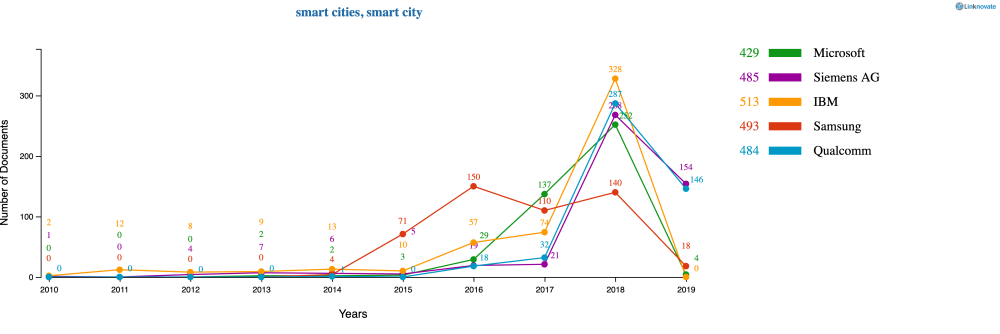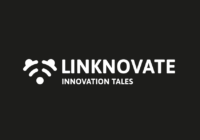Microsoft, Samsung, and IBM are the main Smart Cities leaders worldwide, while the United States, China, and the United Kingdom dominate the world of Smart Cities’ research.
Despite the definition of a smart city is an “under-development” concept, experts around the world agree that Smart Cities are the quintessence of the Internet of Things. It’s the use of sensors to generate data that can be communicated, integrated and analyzed to improve sustainability.
And what are the factors that make a city “smart”?
There are 10 key dimensions of urban life:
1. Governance,
2. Urban planning,
3. Public administration,
4. Technology,
5. The Environment,
6. International Outreach,
7. Social Cohesion,
8. Mobility and Transportation,
9.Human capital,
10. and The Economy.
The IESE has taken into account those 10 dimensions that determine sustainability and quality of life in 180 key world cities and has put together the IESE Cities in Motion Index.
The results show that New York is the world “smartest” city, followed close by London, Paris and San Francisco.
But those leading smart cities wouldn’t rank so high today if it wasn’t for the previous work and innovations of many different companies. In this post, we analyze the companies and organizations that will shape up the smart cities of the future.
Top Organizations leading Smart Cities Innovations
Only two out of the top 10 entities worldwide leading the race for the smart’ cities future aren’t private companies: the Fraunhofer Society Research Organization and the Moscow State University.
Samsung stands out with 177 smart cities’ patents filled since 2010. Their research revolves around topics such as smart electronics, power consumption, or access networks.
| Name | Score | Pubs. | Confs. | Grants | Patents | TMs | News | Web |
 |
2693.2 | 2 | 4 | 2 | – | – | 141 | – |
 |
2609.6 | – | 6 | – | 177 | – | 46 | – |
 |
918.9 | – | – | – | – | – | 50 | – |
 |
800.4 | 19 | 41 | 5 | 1 | 1 | 83 | – |
 |
603.6 | – | – | – | – | – | 59 | – |
 |
582.7 | 4 | 21 | 11 | – | – | 25 | – |
 |
504.7 | 3 | 8 | 1 | – | – | 63 | – |
 |
480.4 | – | – | 25 | – | – | – | – |
 |
466.9 | – | 161 | – | – | – | – | – |
 |
408.9 | – | – | – | – | – | 47 | – |
Top 10 Entities Leading the Smart Cities Innovations. Source: Linknovate.com
NOTE: Since we are constantly updating our data, results may vary. Click on the link for more updated results.
Top 5 Smart Cities Leaders
Samsung has been the undeniable leader in Smart Cities ‘ innovation. However, Microsoft has managed to surpass their efforts in 2017, due to their Smart Cities for All Toolkit for building accessible and inclusive cities.
Also worthy of mention is IBM‘s trajectory. Out of the top 5 smart cities’ leaders, they have been the most steady ones. They were amongst the first ones making Smart Cities a reality and they have been issuing records since 2010.

Source: Linknovate.com
Countries Leading the Advancements in Smart Cities
As customary in regards to emerging technologies and trends, the United States is the country that is leading the innovations. However, countries such as China, India, and Spain are in a higher position in the ranking than usual.
For example, Sterlite Tech (India) is leading the end-to-end design, development, and management of the first city in India, Gandhinagar, with citizen-centric Smart City services.

Source: Linknovate.com
Top Smart Cities Trends
Smart Cities’ main industry trends comprise City Management, Sustainable Development and, of course, Internet of Things applied to city monitoring.
And, fundamentally, startups and SMEs are the driving forces that pull the research, innovations, and breakthroughs.
As relevant examples, we find All Traffic Solutions (USA) on the one hand. They bring connected solutions for intelligent traffic management.
On the other hand, Libelium (Spain) designs and manufactures wireless sensors for Smart Cities and the Internet of Things (IoT).

Most popular Smart Cities’ trends evolution. Source: Linknovate.com
NOTE: Since we are constantly updating our data, results may vary. Click on the image for more updated results.
Smart Cities Over Time
When looking at the aggregated set of records Linknovate has collected for Smart Cities, we can see the evolution of the topic draws a beautiful, exponential growth curve.

Smart Cities Importance Evolution. Source: Linknovate.com






